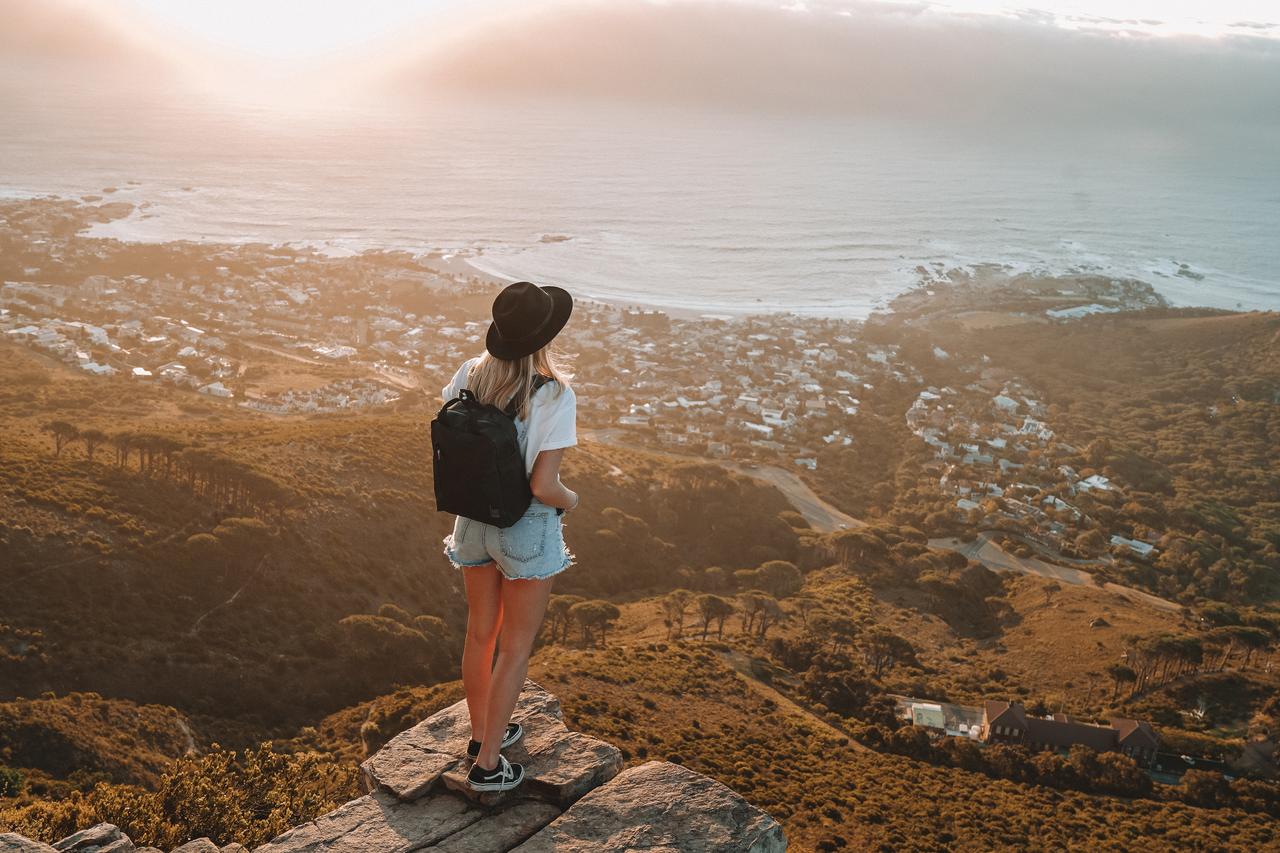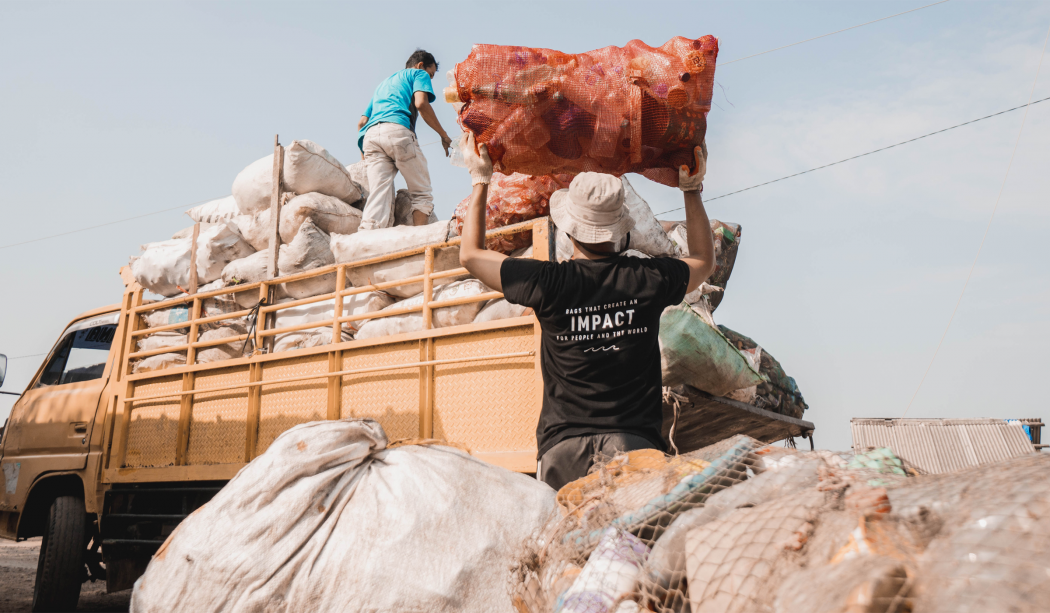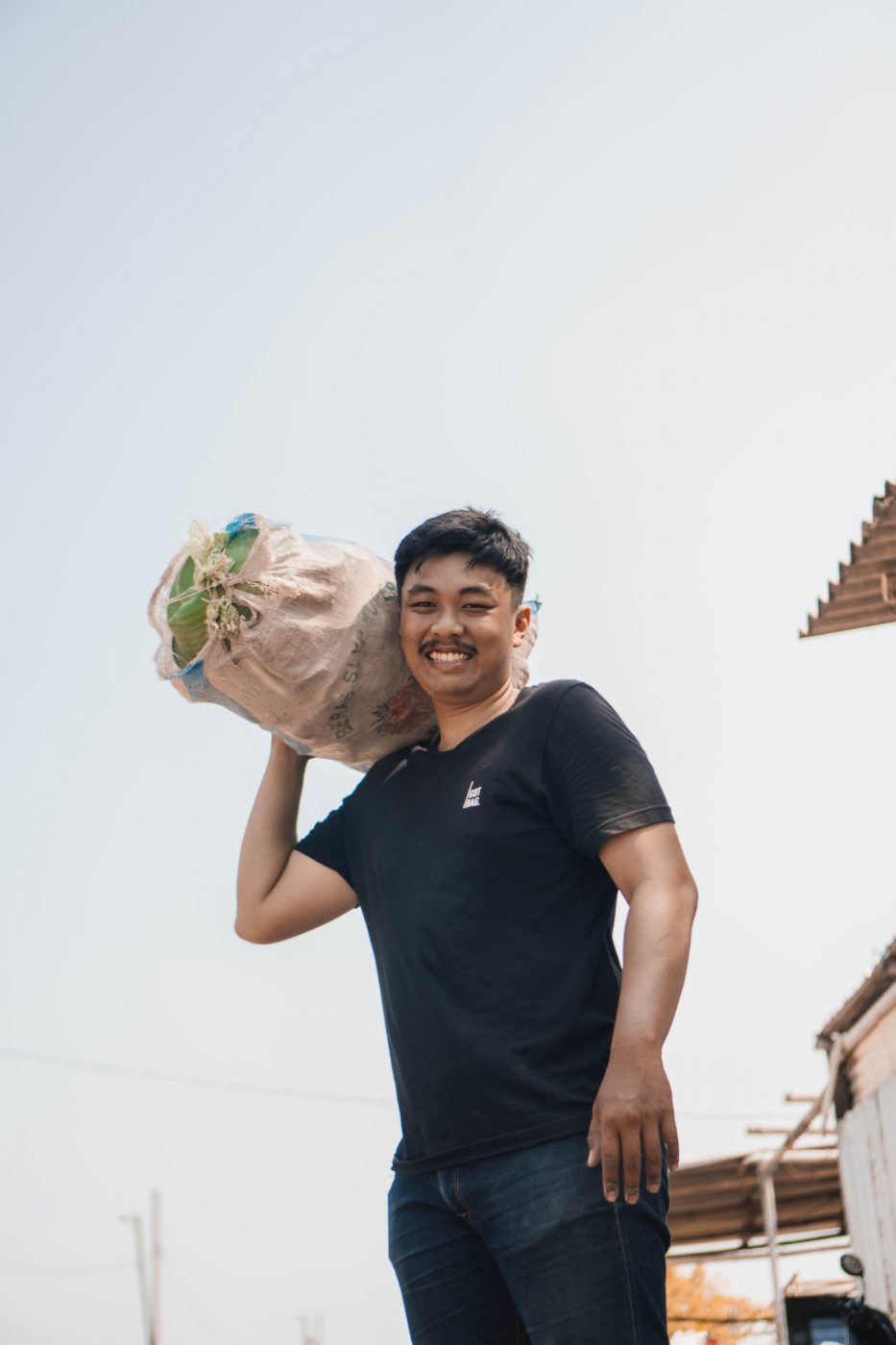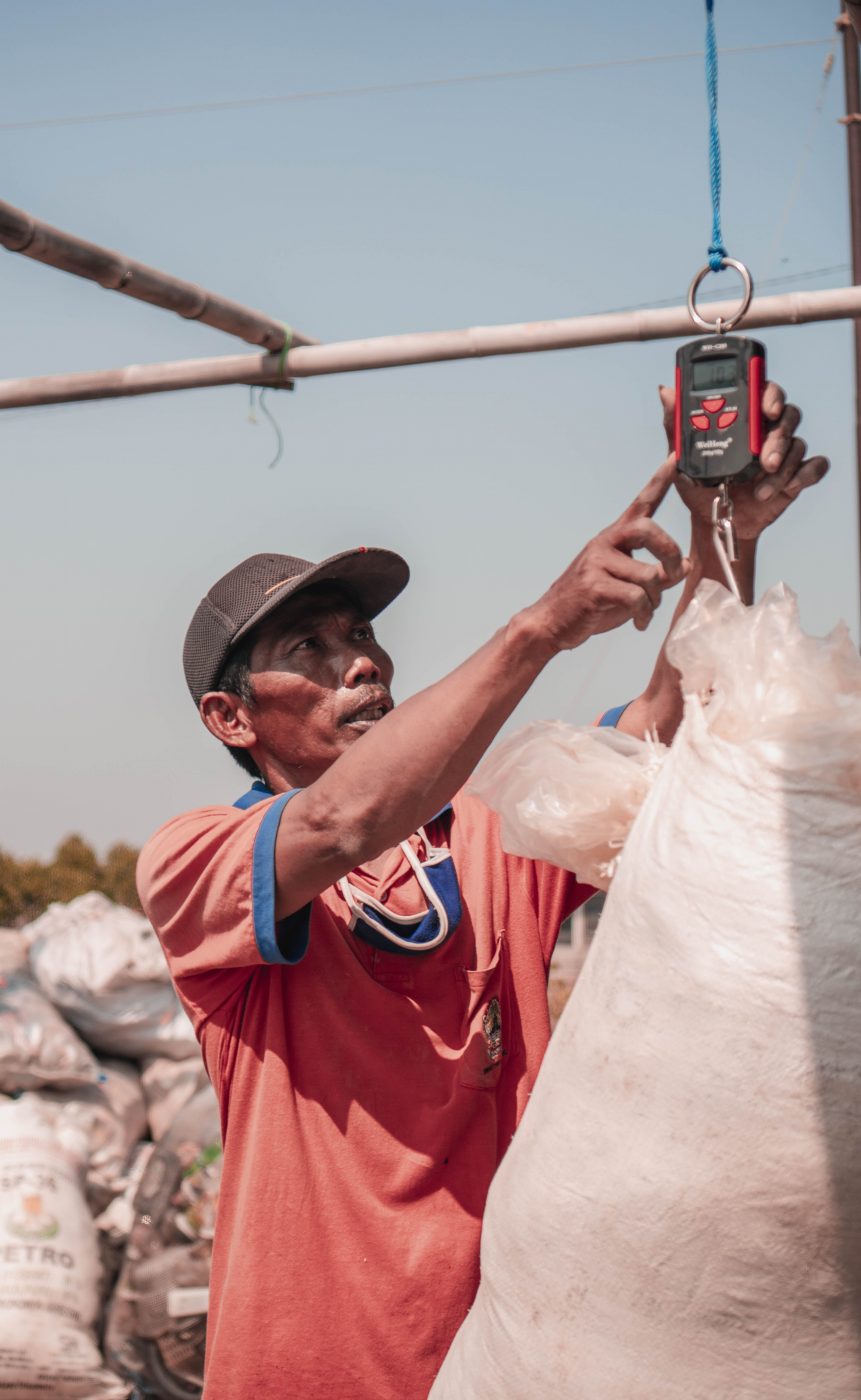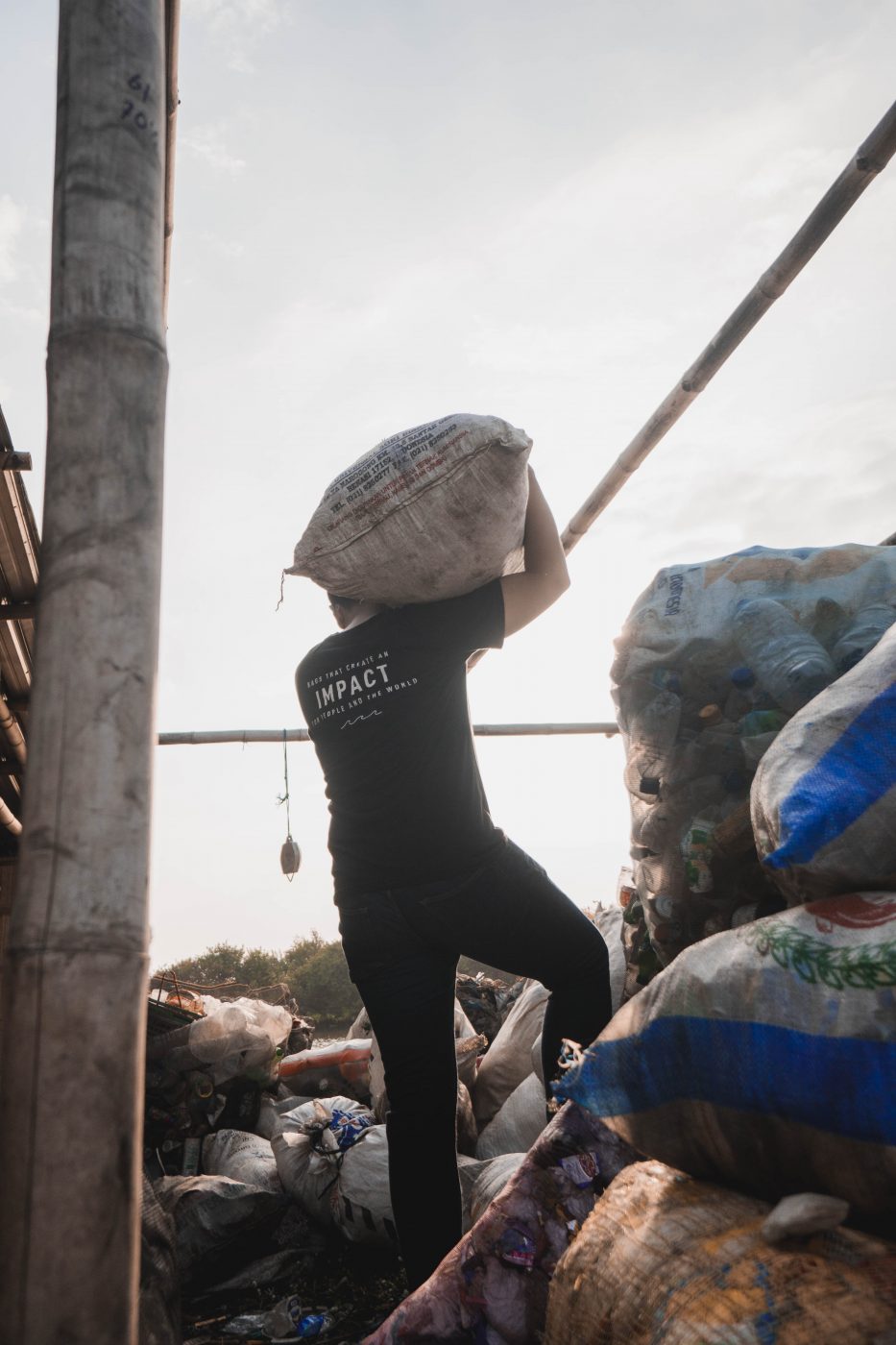GOT BAG is moving mountains in Indonesia—trash mountains, that is.
We all know there is way too much plastic on this planet and subsequently, way too much plastic in the oceans. But good news: there are people out there doing something about it. We see all of you out there hopping on the anything-but-plastic straw train (we prefer ones made of grass) or clutching your reusable water bottle that doubles as an emotional support animal. Those little changes help make a difference, eliminating the potential for further waste in the oceans.
But what about all the trash that is already out at sea? Enter GOT BAG starboard side. An eco-friendly, fashion-forward company that works to raise awareness, remove waste from the ocean, and give that waste second life, such as a nice durable, waterproof backpack. Sustainable and functional. But there’s a lot more to it than the famous three-arrowed sign we’re all familiar with.
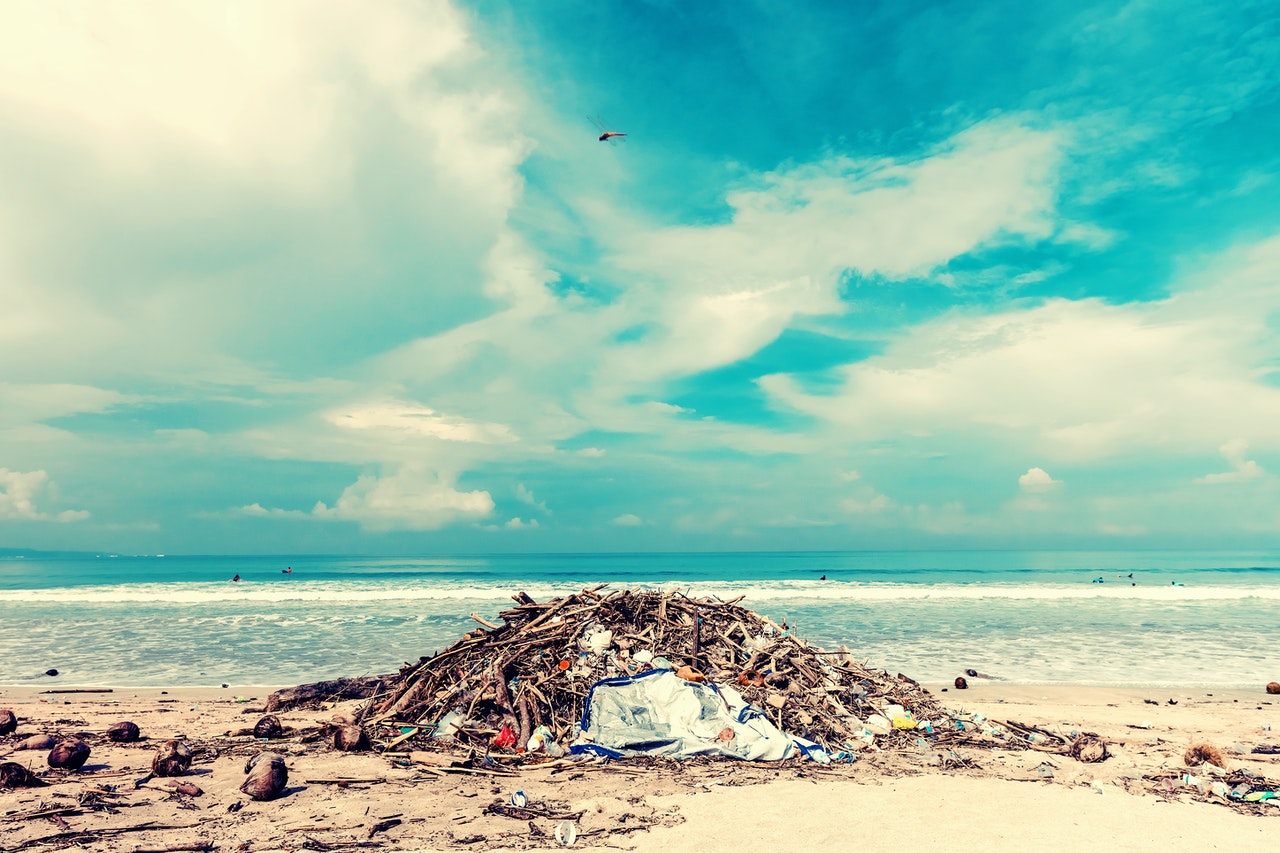
The Plastic Problem
For the past 70 years, humans have created 6.3 billion tons of waste. That’s the equivalent of 35 million blue whales. And it’s a real whale of a waste pile. Although the good samaritans out there try and recycle as best they can, what they think is being recycled at their local facility, is really being shipped across the world. Large countries like the United States, Japan, and Germany export their waste to Southeast Asia, most often to Malaysia, with a high likelihood it will end up in Indonesia. With poor waste management and lack of enforcement, landfills in Indonesia are overflowing and all those plastic bottles originally put in the blue bin are now in the blue ocean.
Of all the plastic waste in the world, only 9 percent of it ends up being recycled.
Worse yet, the majority of garbage that ends up in landfills is non-biodegradable, therefore staying on earth in perpetuity if not properly recycled. A plastic bottle has a lifespan of 450 years, and we only use it for, well, as long as it takes to drink those 16.9 ounces of spring water—which for some could take all day. Consider this your reminder to drink more water (but we mean via a water bottle, not bottled water).
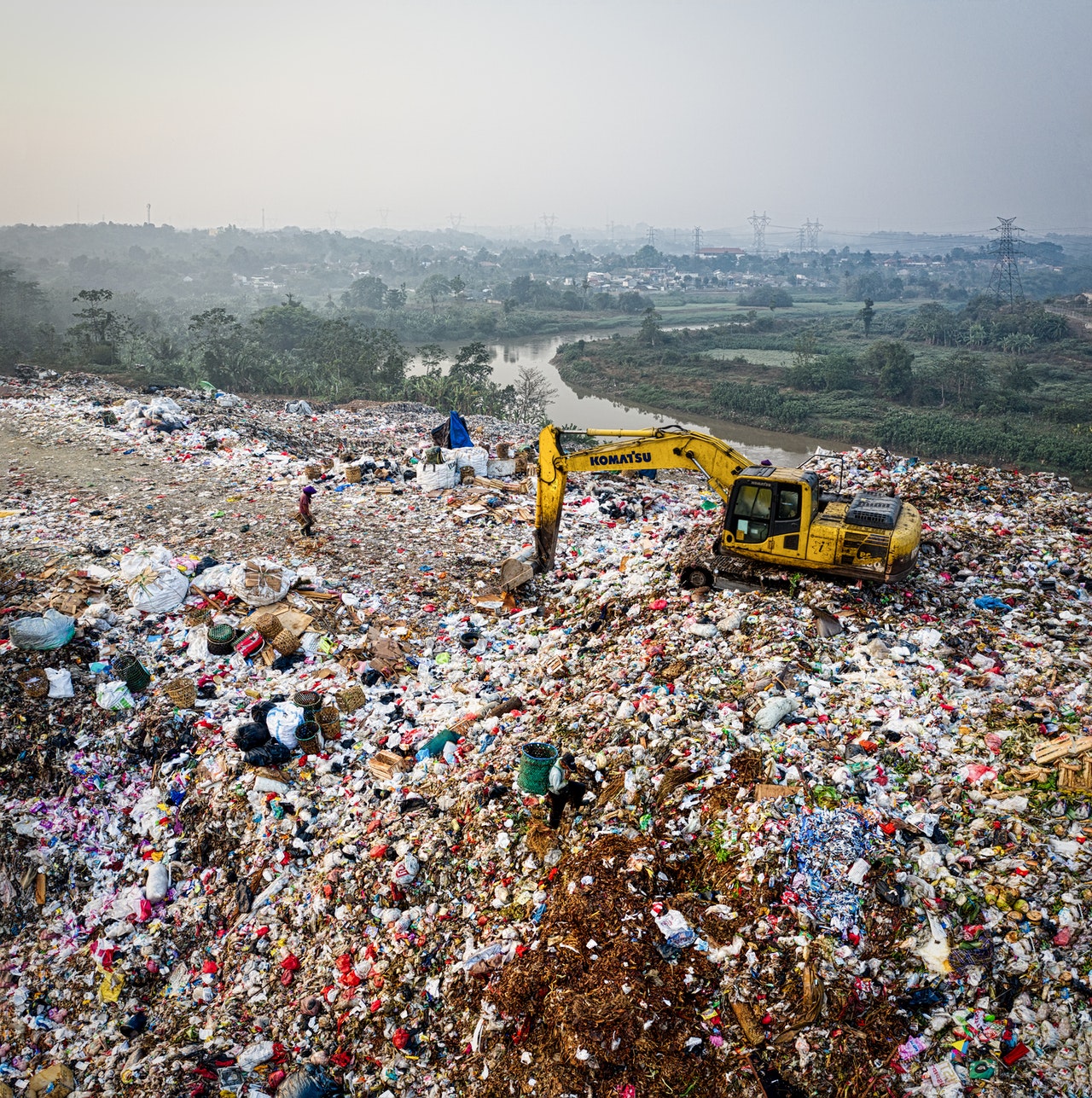
Once the trash finds its way into the oceans, that’s where it stays, accumulating into giant floating trash piles. How scenic. These islands of refuse create dead zones where sunlight can’t get through, strangling and suffocating sea life. While at sea, the trash is again broken down, over and over, turning into microplastics. Currently, microplastics have been found in over 100 animal species, some of which we enjoy when we have a nice seafood dinner. Not quite the “full-circle” cycle we’re looking for. It’s predicted by the year 2050, microplastics will be found in every sea bird. And think how many seagulls are just at your local beach. A lot of birds, a ton of microplastic.
Of all the trash found in the oceans, 75 percent of it is plastic.
Indonesia is a leading country in the fishing industry and is directly impacted by ocean plastic. However, the combination of their close proximity to Malaysia, a lack of waste processing facilities, and the onslaught of monsoons means this archipelago is inundated with marine plastics. With nowhere for the trash to go, it’s usually burned or dumped by locals. Right into the ocean. This continues to put a damper on the success of local fisheries. It pollutes the oceans, kills off fish, and impedes the livelihoods of fishermen.
The GOT BAG Solution
It was here that GOT BAG saw an opportunity to not only do better for the environment, but also for the surrounding communities. By activating the communities closest to the water, GOT BAG built a network of over 2,000 Indonesian fishermen across numerous coastal sub-districts to collect the ocean plastics that they pull in with their fishing nets. By-catch that isn’t edible, but recyclable. From there, the trash is cleaned, sorted, and recycled accordingly—PETs (the material used to make plastic water bottles and other goods) are kept to create the backpacks. The PETs are ground into pellets and processed into high-quality yarn to create a polyester fabric. This water-repellent material is the foundation of a GOT BAG. To date, they have recycled over 117 tons of ocean plastics. Not too shabby for a backpack.
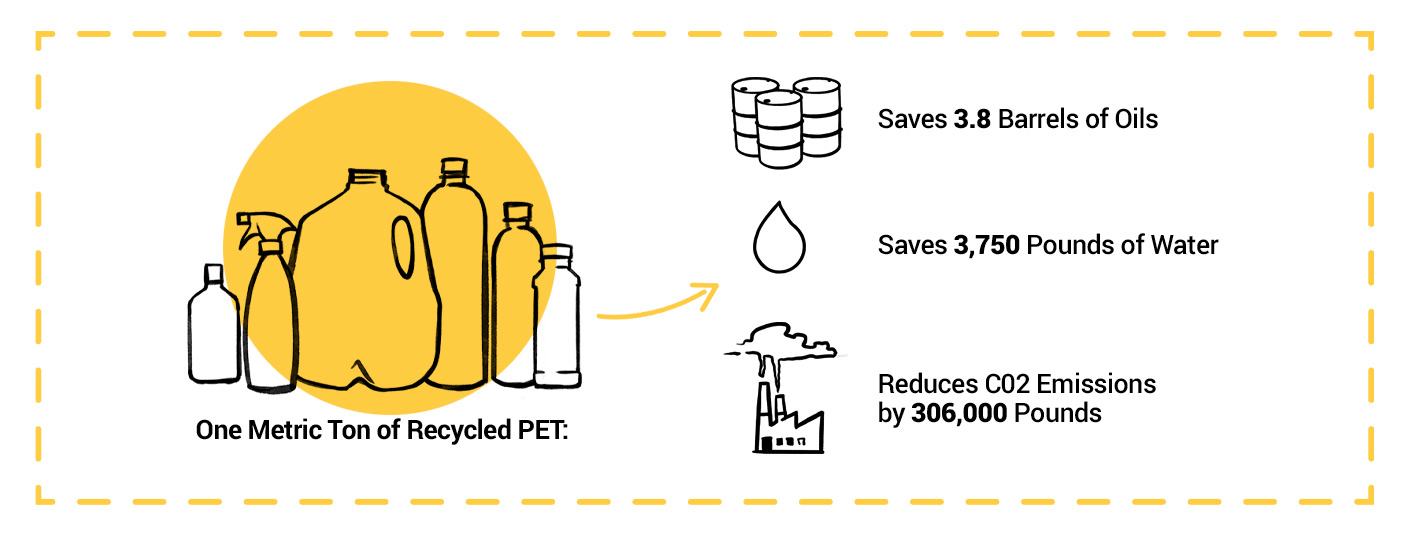
Beyond their environmental mission, GOT BAG’s process is sustainable and set up to reduce carbon emissions during the manufacturing process. Plus, GOT BAG trains the surrounding communities on waste separation and supports the establishment of waste infrastructure in rural areas, encouraging locals to dispose of their waste properly.
From the ocean to the factory, GOT BAG prioritizes fairness—not only for the environment but for every step of the production process. Due to the technical requirements necessary to recycle PETs, GOT BAG is manufactured in China. All involved work under fair conditions, with GOT BAG having the insight into every step of production to ensure standards are met and kept. GOT BAG is helping provide a fair wage and job opportunities to local communities in China and Indonesia.
Pretty good for a backpack. Visit GOT BAG for more information on their sustainable practices and be sure to check out the Whalebone x GOT BAG Weekender Bag to make an eco-friendly difference in your life.
